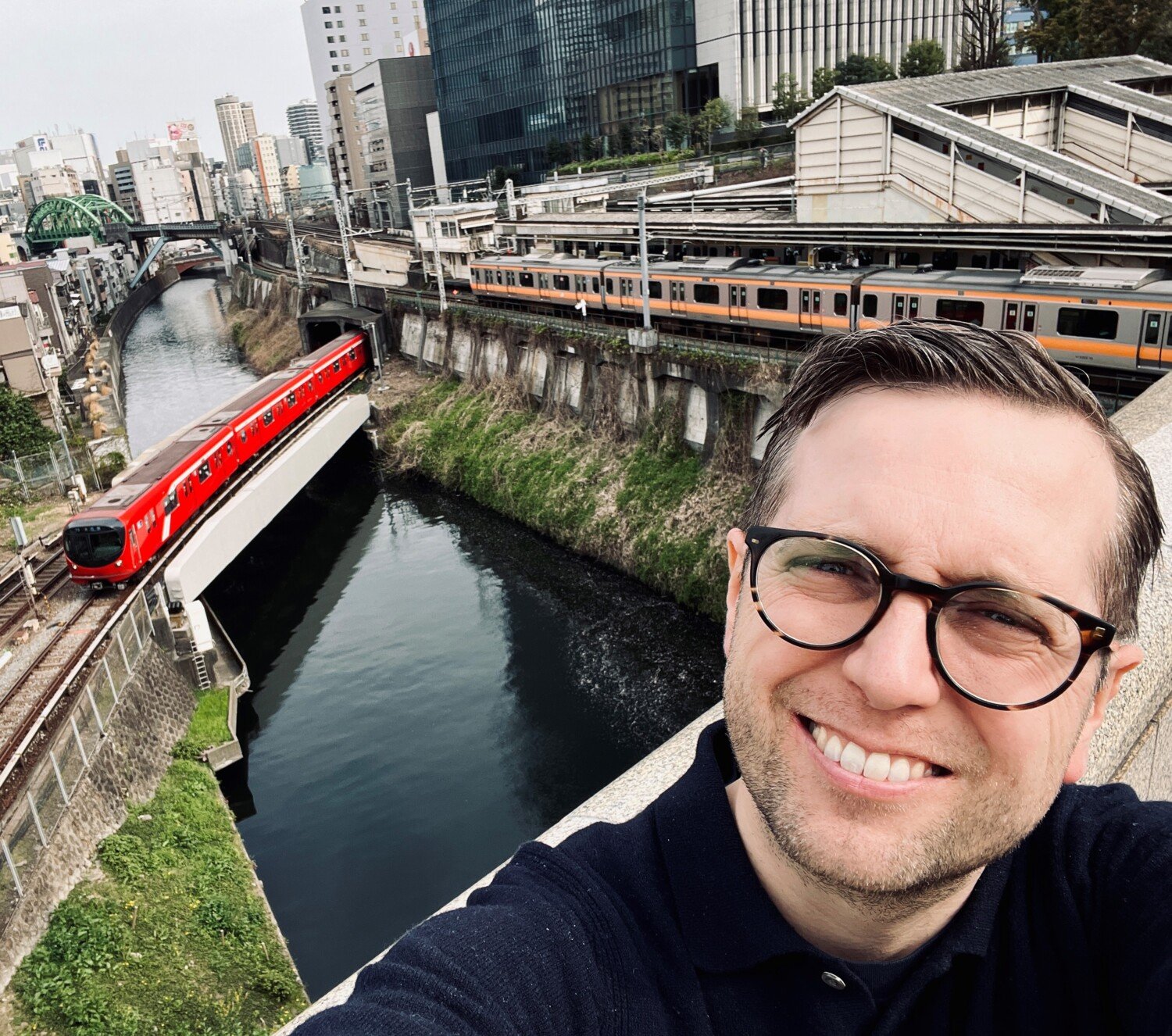Johan Fredin-Knutzén, doctoral student at NASP (National Centre for Suicide Research and Prevention)
“I have always been interested in both psychology and trains. My research project combines these two major interests and aligns with my strong desire to contribute to a better society.
The project investigates how physical and technological interventions in the transport system can prevent suicides.”

Tell us a bit about yourself and your background. What did you do before you started your doctoral studies?
Before starting my doctoral studies, I worked as a consultant on suicide prevention and traffic safety in railways, in parallel with work as a clinical psychologist.
Before that, I worked for several years at BUP, BUMM, and as a school psychologist. For a period, before I finished my work in the metro, I worked in parallel as a psychologist and a train traffic controller in the Stockholm metro, as both perspectives enriched my life. Before studying to be a psychologist, I worked part-time as a train driver and train traffic controller, in parallel with projects and freelance photography work.
How did you become interested in doing research and what made you want to be a doctoral student at our department LIME?
I have always been interested in both psychology and trains. My research project combines these two major interests and aligns with my strong desire to contribute to a better society. Pursuing a doctoral degree is a necessary step to increase the impact of my work, allowing me to explore my interests more deeply. Research opens up new opportunities, such as working on a national and international level rather than being limited to a regional context in Sweden. It also connects me with more interesting and meaningful projects. Through research, I believe I can make a meaningful contribution, and that my unique expertise is both valued and highly useful, for example, in designing new interventions and generating ideas on how to approach suicide prevention within the transport system, and more broadly.
If you were to describe your current doctoral research project in one or two sentences for a class of eight-year-olds, how would you describe it?
I want to learn how to make places like bridges and train stations safer so that more people can stay safe and get help instead of hurting themselves in those environments.
Can you tell us about your PhD research project? What makes your research stand out?
The project investigates how physical and technological interventions in the transport system can prevent suicides. It evaluates the effects of fences on train platforms and tracks, bridge barriers, and AI-based video surveillance on reducing suicide attempts and fatalities. The project includes four sub-studies using longitudinal and quasi-experimental designs. Results aim to inform scalable, effective, and evidence-based suicide prevention strategies in transport systems.
What are you working on right now and in the nearest months?
On this specific day I attended a fellow doctoral student at NASP who successfully defended his thesis. I’m currently working on a sub-study, which I hope to have a near-complete draft of before the summer vacation. In the coming months, I’ll take some courses and, aside from that, focus on the final sub-study and the summary.
What is the best and most interesting part of being a doctoral student?
It’s a privilege to study and learn about one of the things that interests me the most during paid working hours. It’s also valuable that this work opens doors and pathways that wouldn’t otherwise be accessible.
Can you describe the challenges (if any) in being a student at doctoral level?
It can, of course, be challenging to learn everything necessary to become a good researcher. The doctoral level demands not only deep knowledge of subjects but also the ability to critically assess research, perform statistical analysis, manage complex projects, and work independently over extended periods.
What is your relationship with other doctoral students like?
At NASP, I interact daily with several other doctoral students. In addition, I’m in regular contact with two doctoral students from abroad who work in my field. However, I don’t participate in any specific network or systematically meet other doctoral students.
What do you like to do when you are not doing research?
I love spending time with my family and friends. We’re very close and often play games, go on short excursions, take walks, and watch TV together. Outside of that, I spend a lot of time thinking about questions related to my research field - I’d say it’s also my hobby. I also enjoy discussing and thinking about psychology, as well as observing trains and transport systems in my free time.
What do you envision yourself doing after graduation?
I think- and hope- that I’ll continue doing more or less what I’m doing today: working at the intersection of practical implementation and research. I believe that’s where I can make the most significant contribution, combining both my expertise and my interests.
Do you have any advice for someone thinking about applying for doctoral studies?
To choose a topic you're genuinely passionate about is essential, as you'll be deeply involved with it for several years. Personally, I wouldn’t have been able to work this focused and intensively on something I was only a little interested in. It's also essential to ensure you have good supervisors, since the relationship with them plays a crucial role in both your academic development and overall well-being. Finally, be prepared to work independently and face periods of uncertainty.
Anything else you want to say?
I want to thank everyone who has been part of this journey. As mentioned above, I think it’s a privilege.
Name: Johan Fredin-Knutzén
Age: 42
Born: Stockholm, Sweden
Educational background: Clinical psychologist, Stockholm university
Date for start of doctoral studies: May 2022
Title of PhD project: Suicide prevention in the transport system
Employment: Industrial doctoral student employed by Health Care Services at NASP, Region Stockholm
